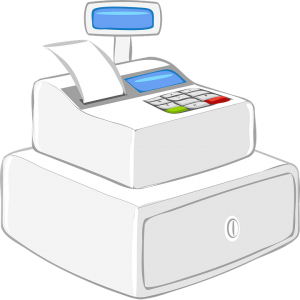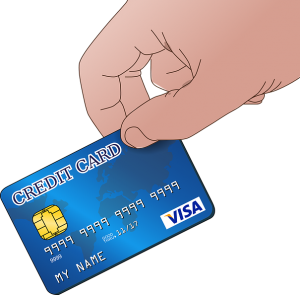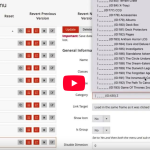
October 7,2021
What is Ecommerce and Do I Need It?
![]()
A common question I see cropping up is ‘what is ecommerce‘ , well have no fear, we are going to have a look at what ecommerce is, a little bit of the history and give you a better idea of if your company should have an ecommerce website.
What is ecommerce?
Ecommerce stands for ‘Electronic Commerce’ and in today’s world refers to mostly to a commercial transaction or purchases made over the internet. Popular examples of ecommerce websites or online stores are websites like Amazon and eBay.
However back in the 1970’s when the term first came about, ecommerce meant something a little different;
“At first, the term ecommerce meant the process of execution of commercial transactions electronically with the help of the leading technologies such as Electronic Data Interchange (EDI) and Electronic Funds Transfer (EFT) which gave an opportunity for users to exchange business information and do electronic transactions. The ability to use these technologies appeared in the late 1970s and allowed business companies and organizations to send commercial documentation electronically.”
Ecommerce-Land: History of Ecommerce
Ecommerce has led to many benefits for both consumers and merchants, over traditional brick and mortar stores like;
The Benefits of ecommerce for customers

Ecommerce websites allow people to buy from the comfort of their own home and have them deliver to their door and (depending on the website), they can even specify when they want it delivered.
They can also shop without the being restricted by opening times, and eliminates the problem of distance to the closest shop.
It is like being open 24/7, where anyone in the world can access and look at what you are selling.
The Benefits of ecommerce for merchants

Selling online requires no retail staff to process the orders, this is all done through the payment gateway, meaning a reduced labour cost.
You will also benefit from a further reach, allowing you to sell to people who may not otherwise have found you. You can add cross-sells and up-sells to encourage people to buy other items they may want.
You have the ability to recapture potential customers through various means including reminder emails that they didn’t complete a transaction. You can offer customer loyalty rewards, increasing the chance of them coming back to spend more.
Now that you have some idea of what ecommerce is and the benefits for both merchants and consumers, the next question you might be asking yourself is:
Do I need an ecommerce website?
Also fairly common question that many retailers will ask at some point, the answer will depend, a little on the product, the market you are in and who you are selling to;
If you sell B2C (Business to Consumer);

If you are a business selling to consumers, then I would strongly advise at looking at having an ecommerce website and selling online. We have already talked about the benefits of having an ecommerce website, like allowing you to reach people who might not otherwise find you and it can exponentially expand your customer base increasing sales and revenue.
If you are still unsure, let’s take a look at the following statistics;
The 2013 UK spend online was over £91 billion.
The 2014 UK spend online was over £107 billion.
And In 2015, online spend in the UK was over £114 billion, with over £24 billion spent over the Christmas period!
As you can see, each year the amount spent online is growing with no sign of slowing down! Is that really something you don’t want to be a part of?
There will be some cases where selling through an ecommerce store might not work for you, if feel your customers won’t order from you online, there is an alternative.
You should at the very least, advertise online, who you are and what products you offer.
A survey conducted by bOnline, found that;
“Even customers who don’t wish to buy online still expect to find product information on a business’ website – 62% said they browse online before purchasing a product in store”
That’s nearly two-thirds of people who don’t buy online, will still use the internet for research, how can they find you if you aren’t advertising online?
There may be some cases where your products can’t easily be shipped or you sell bespoke products where each order is unique. In these cases, an ecommerce website might not be suitable, but that shouldn’t stop you from advertising online, as this will help you increase sales.
Think of it like this, not too long ago, I bought a new car, I went to a dealer, to see the car and give it a test drive before buying it, but where did I find it?
I found it when researching online, but because of the cost, I didn’t feel comfortable paying for it without seeing it first.
So after I found a car model that was suitable, I looked at various dealers and prices until I found one that had low mileage, was fairly new and was priced well (for a car at least), went to the dealers, and bought 3 days later.
Would I ever have found this car if it wasn’t advertised online? Not likely, the dealer was not local to me and isn’t somewhere I would have visited otherwise. By simply advertising online, they got a sale from me, they otherwise wouldn’t have had.
If you sell B2B (Business to Business);

This is a little more tricky to answer, and will depend on which industry you are in and what you supply, some companies will thrive from selling online, others will find it less efficient.
However, this having a website is still a good idea, it will allow people to find out about your company, see what products and services you offer. Having your products and services online is crucial, and can help people find you and generate more leads.
You should take a look at competitors and other websites in your target market, see what they are doing, if they are advertising for lead generation, or if you are able to buy online and decide from there.
What some companies do, is have a website that works similarly to a traditional ecommerce website, but instead of paying at the checkout, it will forward a purchase order of what is in the basket, so stock can be checked and an estimated time of delivery can be sent back with an invoice.
How can I compete with bigger companies?

One concern a lot of people have when looking at an ecommerce website is how they can compete with well-established brands and larger companies or how they can effectively sell a common product that many other companies sell as well.
One of the beauties of selling online is that no one can tell how big or small your company is from the web address (URL), as long as your website looks professional, is easy to use and you can provide a reliable service, there is nothing stopping you from competing with bigger brands.
If you sell a common product, customer loyalty can go a long way, if people are happy with your service, they will be much more likely to return to you.
You can also give incentives, like limited time special offers, hurdle based discounts (e.g. buy two, get one free), discounts off following order, a more attractive returns policy than competitors, there are lots of different ways to persuade people to buy from, you may need to be a little creative with your marketing.
If you want an ecommerce website…..
There are some important aspects you will need to think about. There are plenty of upsides to selling online, but if you want your ecommerce website to be successful, there will be some planning you will need to do beforehand;
- It takes a lot of time and effort to set up a good ecommerce website, having good website navigation and structure, page design and layout, getting high-quality product images and writing individual descriptions for products and categories, isn’t a quick task.
- If you are shipping your products, you will need to think how, which couriers to use, what service etc.
- You will need to have proper stock control, you don’t want to oversell and not be able to fulfil your orders.
- Is the website going to need regular updates and if it does who is going to manage them?
- Depending on how well you ecommerce website does, you may need to look at hiring more staff, to deal with customer queries, packing orders, website updates etc.
- Doing your competitor analysis, finding what the landscape is like and pricing your products competitively can take some time, especially if you sell a large variety of products.
- What CMS are you going to use, where is it going to be hosted, what is your marketing plan?
You should now have a clearer idea of what ecommerce is and be closer to deciding if you need an ecomemrce website.
If you want to start selling online and need an ecommerce website or if there any questions you’re unsure about, why not give us a call on 01952 897444 or contact us and we will be more than happy to help 🙂




